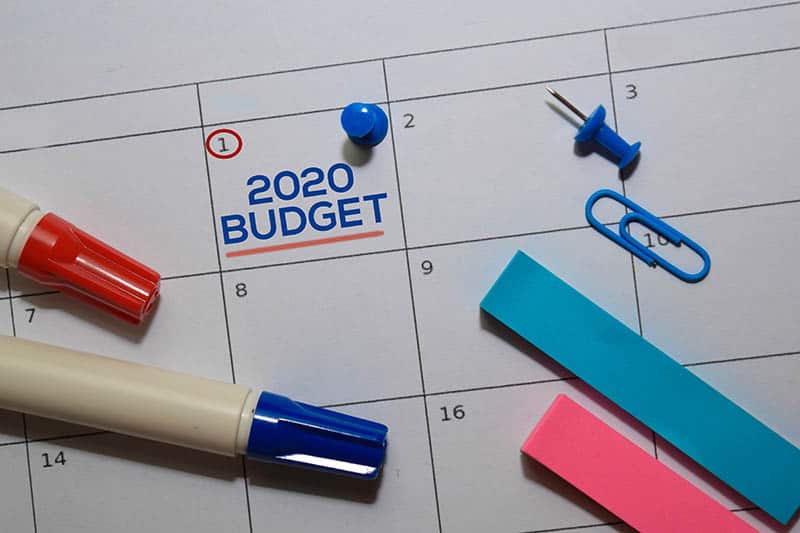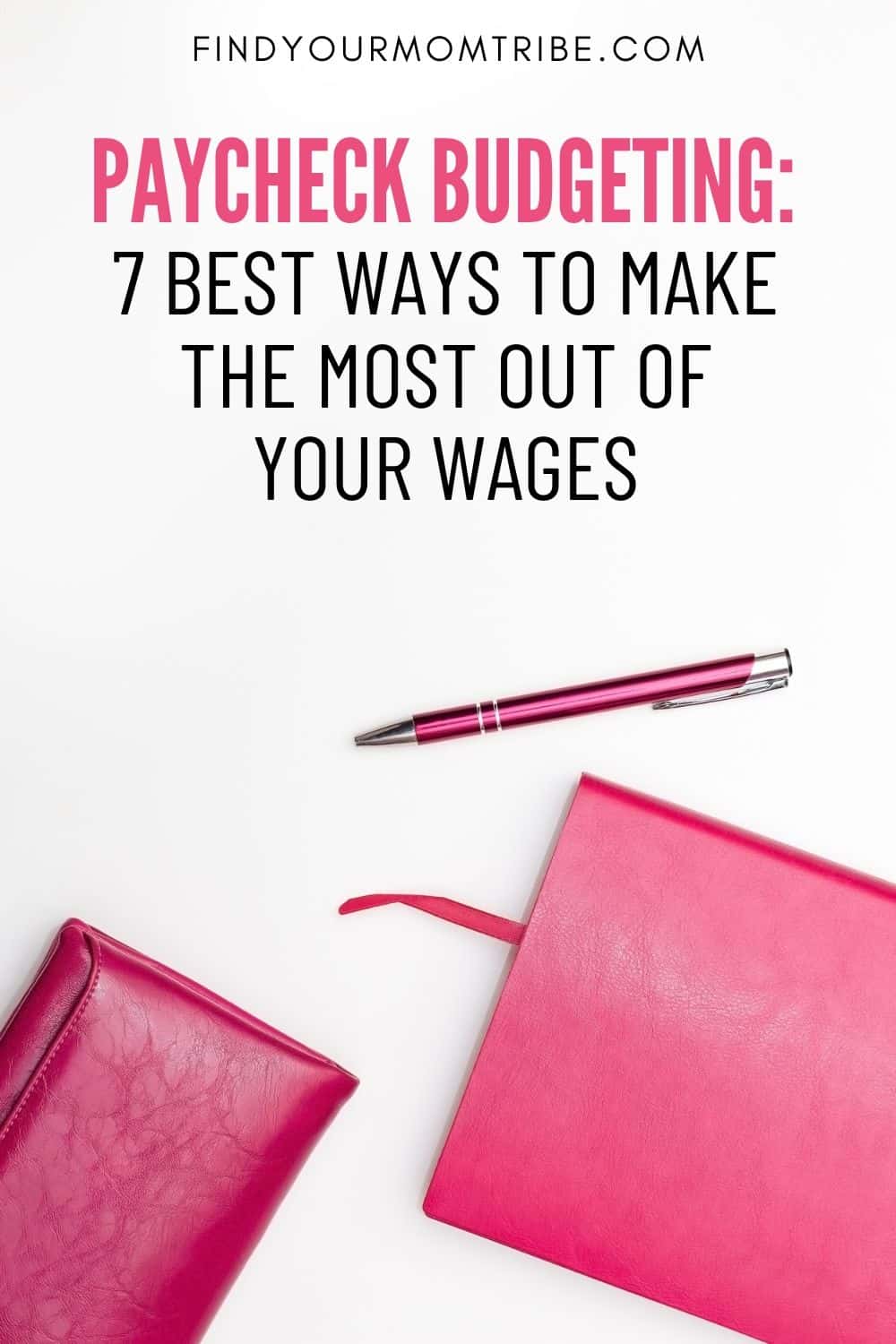Budgeting is a skill many people tend to overlook when it comes to managing their personal finances because they don’t like making changes to their lifestyle. But is it as bad as it seems?
No, not really – especially when it comes to paycheck budgeting, a method where you divide your paycheck up into smaller rations to feed to your various expenses.
It’s a crucial skill for managing one’s finances and requires little sacrifice, especially as time passes and our economy demands more and more of us each passing day.
Besides, budgeting in general is a skill that you’ll want to pick up if you ever want to partake in some of the pricier luxuries in life: a new house, a car, a cruise, or a vacation, for example. Or if you’re thinking of paying that student loan off before you’re 42.
When you’re used to living paycheck to paycheck, it can get rather stressful. Making it easier on yourself and relieving some of that stress by managing your finances better certainly won’t hurt you in the long run.
So, I believe it’s time for you to learn a new skill that might end up saving your (financial) life.
How To Do Paycheck Budgeting
Now, the first steps usually depend on how many times you receive your paycheck per month and then distributing that amount around your expenses.
If you get paid once a month, that’s simple enough, but if you get a paycheck bi-weekly, weekly, or even on a daily basis if you’re living off tips, it can get a bit more math-involved.
Many Americans live paycheck to paycheck so it’s nothing to be ashamed about, but doing so without any financial sense might leave you penniless when an unexpected expense occurs due to an appliance or car breaking down or a medical emergency, so it’s always nice to pinch every penny that you can and put it into an emergency fund just for these kinds of occasions.
You need to figure out how to allocate the funds you have and automate the process where possible so you don’t have to worry about it as much as people who haven’t made the initial effort of making their own paycheck budgeting system.
The way it works is that you ration out the funds that you get from a paycheck and determine where they go, while keeping a certain percentage on the side for that emergency fund.
There is a lot more to it which we’ll cover, but that’s the essence of it.
1. Decide to make a budget

But, that’s not enough. You’ll also need the mental discipline to go through with the plan you set up without making any drastic deviations along the way.
Yes, mistakes and slip-ups can and will happen, those are unavoidable, but don’t let that discourage you. We’re only human and nobody was born perfect or with a degree in economics.
As long as you keep trying to improve yourself, everything should fall into place soon enough and make your future budgeting easier, whatever it may be.
That said, the initial months will be rough while you start doing the math and reallocating your funds as you figure out the right way to distribute them and when.
But, it will all get better from there on as you finally start having enough money to cover your expenses and then some.
Now, there are different budgeting methods like zero-sum budgets and 50/30/20 budget plans that are popular.
These can work here too and aren’t too bad, but it all depends on what kind of person you are and what you’re aiming to do with your budgeting.
If you don’t mind being on a strict budget, the zero-sum method, where you allocate every single dollar to something, can work for you.
However, I’d recommend the 50/30/20 method where you set aside a certain amount of money to still enjoy yourself.
With that method, you won’t feel the harsh impact budgeting can sometimes have if you’re in too deep.
If you are in too deep, then that’s an issue you’ve gotten yourself into and you’ll have to tighten your belt and make some sacrifices.
To prevent that from happening (hopefully), here is how to do proper paycheck budgeting.
2. Calculate your expenses
The first thing you always have to do when making a budget is figure out what the costs of your lifestyle are, when and where the bills come in, and how much they cost.
These are all factors you have to take into account before figuring out if your monthly budget can cover them.
I suggest using a calendar to track the allotted payment periods of different expenses. It’s both more visually appealing and easier to read than a bunch of dates and figures listed one after another in a financial planner – though that’s just personal preference.
The exact numbers of your expenses might be inaccurate at the start because you won’t be able to figure out what credit card payment went where if you weren’t keeping track already.
But, the more you do it, the more precise they’ll be, only varying by a few dollars at some points once you get the hang of it.
Plus, writing something down helps you keep track of it a lot better than keeping it in your head.
Make sure you don’t skip any though, otherwise your math will start to become inaccurate again and the whole point of budgeting will start to get lost.
3. Calculate your earnings

Again, I suggest going back to the calendar method to keep track of things and see how well the paychecks match up to your bills, date-wise.
An excel spreadsheet, a financial planner, or any other method works well, too.
Doing it this way will help you when you start doing the math for the actual budgeting process.
However, you can’t start doing the math without everything factored in so make sure these calculations are as accurate as they can be.
Once the process is done, you’ll have the foundation for getting your financial life in order and you’ll be well on your way to becoming a proper budgeter.
4. Determine the goal of the budget
It’s not enough to just say you want to start budgeting, you need to set a goal for yourself as well. What the reason for the budgeting actually is in the first place.
Maybe it was just to start saving some money to get out from a rut, or maybe you wanted your family to go on a nice vacation or something.
Whatever the case, having a goal will help keep you on track a lot better as you go from one weekly paycheck to the next and will give you a savings goal to work toward, as well as keep you motivated.
Because, like I said before, a lot of effort you put into budgeting is mental and you need all the help you can get to stay on track in the initial months, when it might seem the hardest.
The times where you might struggle and scramble for every penny until your next payday arrives. Hopefully that’s not going to be the case as that’s exactly what we’re trying to avoid here.
5. Start budgeting

Now that we have our expenses and earnings properly displayed, it’s time to start calculating if we’re in a net positive or a net negative.
In other words, when you add your total monthly earnings to your total monthly expenses, is it a positive or negative number?
If the number overall is negative, then you might need to look at the list and see if you can cut down on some expenses in a reasonable manner.
You can’t just go slashing things down willy-nilly – it won’t do you any good if it’s an unreasonable cut from your food budget for instance. It’ll just end up ruining the math you have done for now and set you up for failure.
If after all the possible cuts, you’re still sinking around in the negatives, you may want to take some extra work up – a side job that’ll give you that necessary monetary injection for you to fuel your day-to-day life with.
However, if you’re floating around a net positive from the get-go, you’re good to go.
I’d still suggest maybe reviewing your expenses to see if there are some unnecessary costs remaining that you can reduce so you can have more money for future expenses or even a sinking fund, but again, that’s my personal preference.
Once you make sure you’re in the green, it’s time to start looking at allocating those funds.
Start off by covering your recurring monthly bills – your monthly expenses as it were: electricity bill, cell phone bill, water bill, heating bill, internet bill, etc.
Your main living expenses. Make a priority list and allocate money from the paychecks/payments that occur nearest to said bills and their due dates.
That way you won’t have to keep the money around for a long time and you won’t be tempted into potentially purchasing something before the bills’ pay period arrives.
Once those are sorted, start going through any debts that you have to pay and funnel portions of your remaining money toward those.
Things such as student loans, credit card debt, monthly car payments and the like all come into this category.
Everything mentioned here takes utmost priority and must be paid otherwise you risk falling further into debt or losing a house utility (or even your house if you are paying the mortgage off still), so it’s best that they’re always paid and secure.
Plus, paying those debts off in a timely manner will affect your credit score in a positive way, which can only aid you in future budgeting endeavors or any potential luxuries you may want to take a loan out for.
Once all of these are covered, it’s time to look at some more variable expenses: things like gas for your car, groceries, and restaurants all come under this category.
There are two types of variable expenses. The first is the luxuries, which is what your fun money goes toward if you have any left once you finish budgeting (things like movie tickets, eating out at restaurants, buying things online, etc.).
They’re also usually primary targets for when you want to cut costs down as they’re the easiest ones to live without.
Then you have the other type of variable expense – the basic necessity. These are the expenses that, while not fixed, are necessary for your day-to-day life.
Groceries are a prime example of a variable expense that is also a basic necessity. You can’t fully cut your grocery budget down, and it can vary from month to month depending on how much it costs you.
You can try and regulate it, though, but make sure you set aside a realistic budget for it.
Finally, we have the expected and unexpected expenses.
An expected expense is something you don’t pay for monthly. These are usually annual costs, more expensive than you usually have to deal with, but you know when they’re coming and can prepare for them.
Something along the lines of a car insurance registration for instance.
For these expenses you create a sinking fund, a fund where you store a percentage of your excess money throughout the year so you can deal with the month where this expense occurs – premeditated planning as it were.
Doing it this way prevents it from becoming too much of a burden on your financial situation.
And finally, the unexpected expenses. These are expenses that you have little control over and that can occur at any time.
Things like natural disasters, medical bills for illnesses or accidents, or the cost of replacing an appliance that breaks down.
For these expenses, you set up a different kind of fund, an emergency fund. It’s functionally similar to a sinking fund, except hopefully you won’t need to tap into it as often.
After all that, the remaining money, if you choose to set any aside, can and should be used as you please and can help relieve the stress that the process of budgeting can inflict. Nobody wants to live their life as a slave to their bills, you have to be able to let loose sometimes.
6. Perform regular maintenance on your budget

Now that your budget has been set up, you shouldn’t just leave it to remain a static thing because expenses will vary and change – plus your math could have been wrong. Make sure you perform reviews at the end of the month.
Keep track of your calculations and see if they add up to your expenses from month to month and make adjustments where necessary. This way you’ll get a better and more efficient system over time.
The healthier you keep the system of your paycheck method, the healthier your personal finances will be.
7. You’re not in this alone
Unless you’re a single mom, you are not the only one responsible for the bills – your partner is too so don’t put all the burden on yourself.
Discuss this with them and split the expenses fairly and evenly to cover what you can. That way you can both have some more of that extra money lying around that I’ve talked about a few times.
Not only that, but your kids can help too if they’re old enough. Lowering their allowances or agreeing to buy fewer games per month, for example, will help you save up a couple of bucks to keep you going until your next paycheck as well.
But, don’t forget to communicate this to them and talk it out. Nobody likes losing out on something without knowing the exact reason why and this way you get to foster a better understanding between you and them when they see you treat them with respect.
The Bottom Line
Paycheck budgeting allows you to take control of your money instead of being a slave to it in the way most Americans are due to the way our economic system functions.
Many people will seek out some odd alternative ways to save money to avoid having to make sacrifices to their lifestyle so they can get their personal finances in order.
The truth of the matter is that you need a budget to do this and you will need to potentially make sacrifices depending on how deep in debt you are.
While it may take a while to reach a nice, stable balance of positivity, through proper budgeting you’ll be able to start making all of your debt payments and eventually become debt free.
And, if you continue with budgeting further and take it up as a lifestyle choice, once you’re debt free, your bank account will look a lot bigger and your credit score will start going up, relieving a lot of the financial stress that may otherwise come along down the line.
Like this post? Please share or pin it for later. You can also stay in the loop and follow us on Facebook, Instagram and Pinterest.

This post contains affiliate links. Please see our full disclosure for more info.

